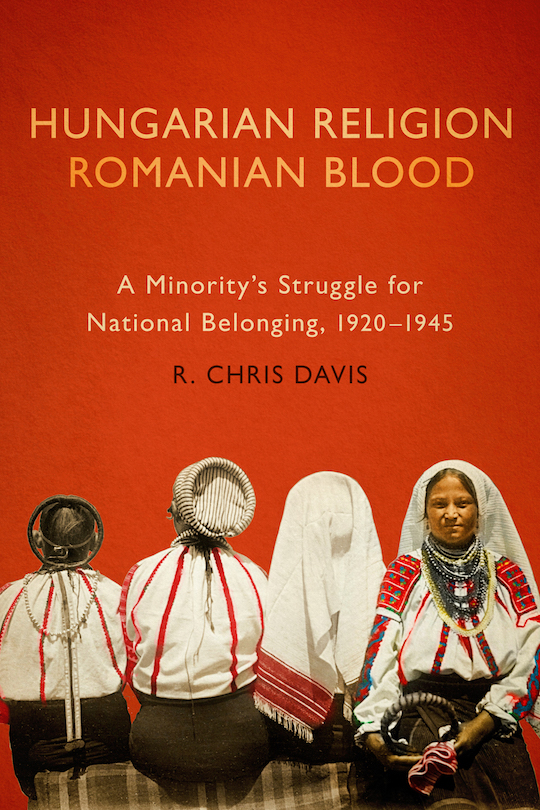So excited to announce my book is the Association for Slavic, East European & Eurasian Studies winner of the Barbara Jelavich Book Prize for “distinguished monograph published on any aspect of Southeast European or Habsburg studies since 1600, or nineteenth- and twentieth-century Ottoman or Russian diplomatic history.” Visit my publisher’s site for more details about my book Hungarian Religion, Romanian Blood: A Minority’s Struggle for National Belonging, 1920–45, published by Wisconsin University Press (2019).
A paperback version of the book will be published this summer 2021 for $22. Visit the book’s Amazon page to pre-order.
Historical lessons pertinent to today’s resurgent nationalisms
Amid the rising nationalism and racial politics that culminated in World War II, European countries wishing to “purify” their nations often forced unwanted populations to migrate. The targeted minorities had few options, but as R. Chris Davis shows, they sometimes used creative tactics to fight back, redefining their identities to serve their own interests.
Davis’s highly illuminating example is the case of the little-known Moldavian Csangos, a Hungarian- and Romanian-speaking community of Roman Catholics in eastern Romania. During World War II, some in the Romanian government wanted to expel them. The Hungarian government saw them as Hungarians and wanted to settle them on lands confiscated from other groups. Resisting deportation, the clergy of the Csangos enlisted Romania’s leading racial anthropologist, collected blood samples, and rewrote a millennium of history to claim Romanian origins and national belonging—thus escaping the discrimination and violence that devastated so many of Europe’s Jews, Roma, Slavs, and other minorities. In telling their story, Davis offers fresh insight to debates about ethnic allegiances, the roles of science and religion in shaping identity, and minority politics past and present.
Advance Praise
“An authoritative examination of nation building and minority politics during some of Europe’s most difficult years. Davis brings together so many significant historical themes that the story of these few villages makes us rethink modern European history.”
—Roland Clark, author of Holy Legionary Youth: Fascist Activism in Interwar Romania
“This transnational case study makes larger, comprehensive arguments about Central and Eastern European nation building. It powerfully employs theory from history, anthropology, political science, and sociology to disentangle the conundrum of identity.”
—Calin Catoi, University of Bucharest
“A remarkable combination of microhistorical richness and interpretive acumen, this is a beautifully written study of one of the ‘little peoples lost to history,’ caught between more powerful states’ self-interested attempts to dictate their identity. It prises open the deceptively simple question ‘who do you think you are?’ to reveal startling contests over the meaning of identity in politics, language, and lived reality.”
—Jane Caplan, University of Oxford
“Introduces fundamental questions of identity and belonging, asking us to consider the importance of language, religion, territory—and, no less, tradition and bias—as both building blocks and obstacles to ethnic community. An indispensable contribution to the investigation of modern nationhood.”
—Keith Hitchins, University of Illinois
“A major contribution to debate on the meaning of collective identity and its deployment for political ends. Eloquent, original, sophisticated, and persuasive.”
—Dennis Deletant, Georgetown University
Product Details
• Hardcover: 272 pages, 12 B/W illustrations
• Publisher: University of Wisconsin Press (2019)
• Language: English
• ISBN-10: 0299316408
• ISBN-13: 978-0299316402
• Product Dimensions: 6 x 0.5 x 9 inches

